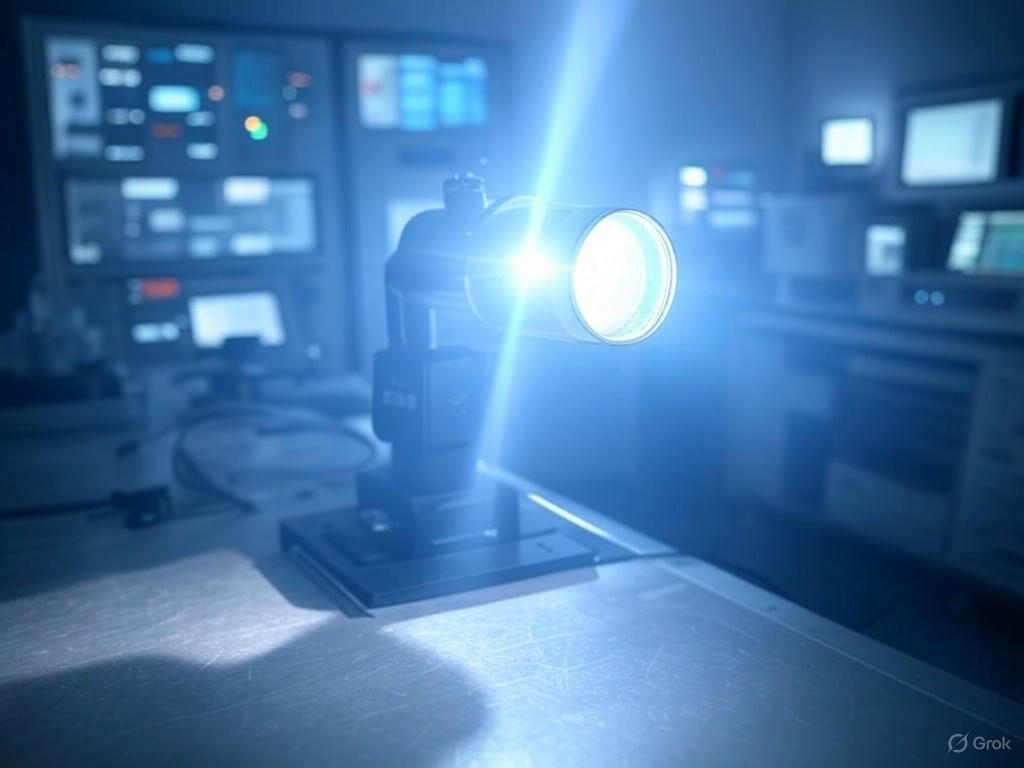ZEUS Laser Unleashes Unprecedented Power, Rivaling Particle Accelerators
In a groundbreaking stride for high-energy physics, the University of Michigan has unveiled a game-changer in scientific innovation: the ZEUS laser, or Zettawatt-Equivalent Ultrashort pulse laser System. This extraordinary piece of technology has reached an astonishing power output of 2 petawatts, positioning it as a formidable competitor to traditional particle accelerators. Unlike the massive, sprawling facilities that have long dominated particle research, ZEUS offers a compact yet incredibly potent alternative, opening new doors for experiments that probe the fundamental building blocks of the universe.
The significance of ZEUS lies in its ability to generate ultra-intense, ultrashort laser pulses that mimic the extreme conditions found in cosmic events like black holes or neutron star collisions. By focusing such immense energy into bursts lasting mere femtoseconds, scientists can recreate environments that reveal how matter and energy interact at the most fundamental levels. This capability allows researchers to study phenomena that were once only accessible through billion-dollar accelerators, but now within the confines of a university laboratory. The implications are staggering—ZEUS could accelerate discoveries in quantum physics, astrophysics, and even medical technology, where high-energy beams are used for precision treatments.
What sets ZEUS apart is not just its raw power but also its efficiency and accessibility. Particle accelerators, while invaluable, require vast resources, international collaboration, and years of construction. In contrast, ZEUS represents a shift toward more sustainable and localized research tools. The University of Michigan team behind this marvel envisions a future where such lasers democratize high-energy physics, enabling smaller institutions to contribute to cutting-edge science. Beyond pure research, the technology promises practical applications, from developing advanced materials to pioneering new energy solutions inspired by the extreme physics of laser-induced reactions.
Moreover, ZEUS is poised to redefine how we approach some of the universe’s greatest mysteries. By simulating conditions akin to those at the dawn of time, scientists hope to uncover insights into dark matter, antimatter asymmetry, and the origins of cosmic rays. Each experiment conducted with ZEUS is a step closer to understanding the forces that shape reality itself. The laser’s precision also offers a unique advantage in testing theoretical models that have long eluded experimental confirmation, potentially rewriting textbooks in the process.
As the scientific community celebrates this milestone, the journey of ZEUS is just beginning. Its 2-petawatt achievement is a testament to human ingenuity and the relentless pursuit of knowledge. With plans to push the boundaries even further, the team at Michigan is already exploring ways to scale up the laser’s capabilities. The future of physics looks brighter—and more intense—than ever, as ZEUS paves the way for a new era of discovery, proving that immense power can indeed come in compact packages. This laser is not just a tool; it’s a beacon of what’s possible when innovation meets ambition.


